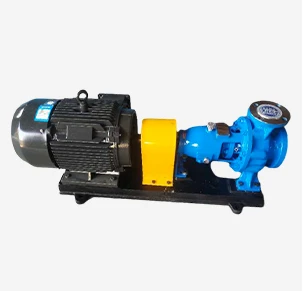Lao
- Afrikaans
- Albanian
- Amharic
- Arabic
- Armenian
- Azerbaijani
- Basque
- Belarusian
- Bengali
- Bosnian
- Bulgarian
- Catalan
- Cebuano
- Corsican
- Croatian
- Czech
- Danish
- Dutch
- English
- Esperanto
- Estonian
- Finnish
- French
- Frisian
- Galician
- Georgian
- German
- Greek
- Gujarati
- Haitian Creole
- hausa
- hawaiian
- Hebrew
- Hindi
- Miao
- Hungarian
- Icelandic
- igbo
- Indonesian
- irish
- Italian
- Japanese
- Javanese
- Kannada
- kazakh
- Khmer
- Rwandese
- Korean
- Kurdish
- Kyrgyz
- Lao
- Latin
- Latvian
- Lithuanian
- Luxembourgish
- Macedonian
- Malgashi
- Malay
- Malayalam
- Maltese
- Maori
- Marathi
- Mongolian
- Myanmar
- Nepali
- Norwegian
- Norwegian
- Occitan
- Pashto
- Persian
- Polish
- Portuguese
- Punjabi
- Romanian
- Russian
- Samoan
- Scottish Gaelic
- Serbian
- Sesotho
- Shona
- Sindhi
- Sinhala
- Slovak
- Slovenian
- Somali
- Spanish
- Sundanese
- Swahili
- Swedish
- Tagalog
- Tajik
- Tamil
- Tatar
- Telugu
- Thai
- Turkish
- Turkmen
- Ukrainian
- Urdu
- Uighur
- Uzbek
- Vietnamese
- Welsh
- Bantu
- Yiddish
- Yoruba
- Zulu
Telephone: +86 13120555503
Email: frank@cypump.com
ທ.ວ. . 22, 2024 05:11 Back to list
radial flow pump
Understanding Radial Flow Pumps A Comprehensive Overview
Radial flow pumps are an essential component in various industrial and commercial applications, effectively transporting fluids through a wide range of systems. These pumps are characterized by their unique design, which facilitates the movement of fluid in a radial direction, perpendicular to the pump shaft. This article delves into the working principle, applications, advantages, and maintenance considerations of radial flow pumps.
Working Principle
At the heart of a radial flow pump is the impeller, which consists of blades that push the fluid outward from the center towards the outer casing. When the impeller rotates, it imparts kinetic energy to the fluid, causing it to accelerate. This movement shifts the fluid from the intake (inlet) near the center of the pump to the discharge (outlet) at the outer edge. The fluid is then directed into the system through the discharge pipe, often experiencing an increase in pressure in the process.
The radial flow design is particularly effective for applications requiring high flow rates at relatively low pressures. The energy conversion from mechanical to hydraulic is highly efficient, leading to effective fluid movement across various systems.
Applications
Radial flow pumps are widely utilized across different industries due to their versatile design and efficiency. Some of the primary applications include
1. Water Supply Systems They are commonly used in municipal water supply systems, irrigation, and drainage applications where a steady flow of water is required.
2. Cooling Systems In power plants and industrial processes, radial flow pumps play a crucial role in circulating coolant fluids to prevent overheating.
3. Chemical Processing These pumps are suitable for transferring chemical feeds because they can handle various fluid types, including corrosive and viscous liquids.
radial flow pump

5. HVAC Systems In heating, ventilation, and air conditioning (HVAC) systems, radial flow pumps help circulate water or refrigerants through the system efficiently.
Advantages
Radial flow pumps offer several advantages over other types of pumps, making them a preferred choice in many settings
- High Flow Rate Their design allows for high flow rates, making them ideal for applications requiring the movement of large volumes of fluid.
- Compact Design Radial flow pumps often have a compact structure, which makes them easier to install and maintain in tight spaces.
- Durability Constructed with robust materials, these pumps have a longer lifespan and can handle a wide range of operating conditions.
- Versatility They can efficiently pump a variety of fluids, from water to more viscous liquids, making them suitable for different industrial processes.
Maintenance Considerations
To ensure optimal performance and longevity of radial flow pumps, regular maintenance is crucial. Routine checks should include inspecting the impeller for wear and tear, ensuring that bearings are lubricated, and monitoring for any signs of leakage. Additionally, it is essential to maintain the appropriate suction conditions to prevent cavitation, which can significantly damage the pump.
Conclusion
Radial flow pumps are invaluable tools in the movement of fluids across a broad spectrum of industries. Their efficient design, high flow capability, and adaptability make them a popular choice for numerous applications. By understanding their operation and maintenance, users can guarantee the reliability and durability of these essential pumping systems, ensuring smooth processes in their respective environments.
-
Heavy-Duty Mining Sludge Pumps - Wear-Resistant Slurry Handling
NewsAug.02,2025
-
Horizontal Split Case Pump with GPT-4 Turbo | High Efficiency
NewsAug.01,2025
-
ISG Series Pipeline Pump - Chi Yuan Pumps | High Efficiency, Durable Design
NewsAug.01,2025
-
Advanced Flue Gas Desulfurization Pump with GPT-4 Turbo | Durable & Efficient
NewsJul.31,2025
-
ISG Series Vertical Pipeline Pump - Chi Yuan Pumps | Advanced Hydraulic Design&Durable Construction
NewsJul.31,2025
-
ISG Series Vertical Pipeline Pump - Chi Yuan Pumps | Energy Efficient & Low Noise
NewsJul.31,2025










